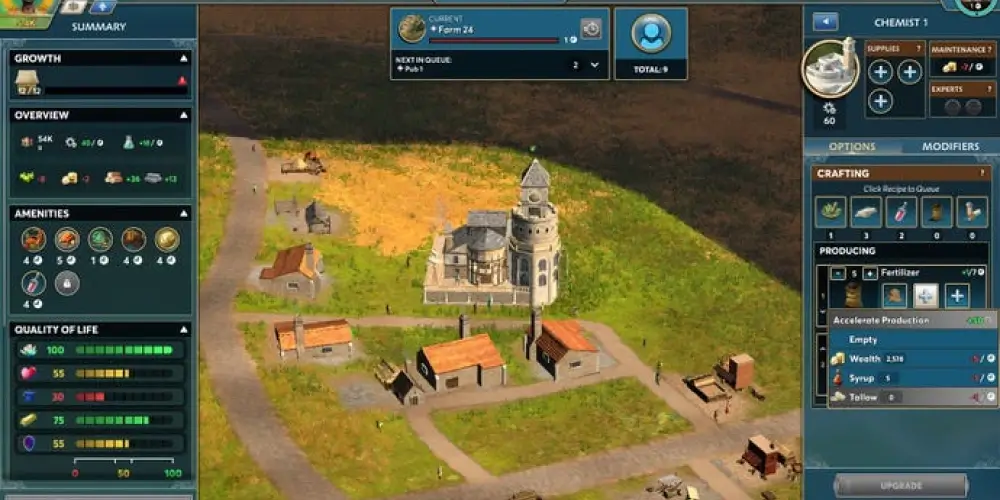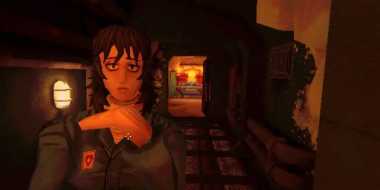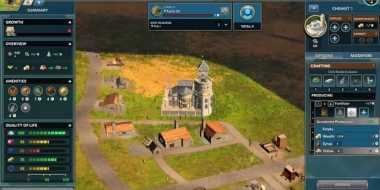

Ara: History Untold Review: Almost Great Resource Management in a 4X Shell
02/10/2024 Vienna Kristy 2284
Ara: History Untold is a game that tries to reimagine empire-building by focusing on intricate resource management, only to trip over its 4X ambitions. What starts with unique and promising mechanics soon gets bogged down by repetitive micromanagement, weak AI, and a user interface that chafes under the weight of its complexity.
At its core, Ara introduces some truly interesting ideas—particularly in how it handles research and resource chains. But as it stretches itself into the familiar 4X mold, things start to crack. There's a near-great game lurking here, but it's bruised from being crammed into the framework of another civilization-building clone.
A Familiar Premise with a Unique Twist
If you've played Civilization, the premise of Ara will feel familiar. You pick a historical civilization and guide them from the stone-scratching days of Unk and Thogg to the era of Unkbot, God of Machines. The usual conquering, building, and tech progression apply, but Ara spices things up with its research system.
After researching enough topics in one era, you can move on to the next, but here’s the catch: any unresearched topics are discarded forever. This means you could skip over certain resources, buildings, or units, making each era a delicate balancing act of choices. The game’s standout feature is this web of interconnected decisions—researching the wheel in one era might unlock chariots, but skip it and you might find another path to progress through algebra, for example. However, the chariots? Gone forever. You might even end up in the bizarre position of building Oxford University without ever learning how to make paper.
It’s a fun system, giving each playthrough a fresh sense of discovery and encouraging replayability as different priorities lock and unlock certain opportunities. And yet, while this research system is vital to your progression, Ara's core focus quickly shifts away from these innovative ideas.
The Real Game: Managing Production Chains
Where Ara really stands out is in its resource and production management. Unlike most 4X games where resources add another +1 to a stat, here, they’re the entire game. You need timber, stone, and more advanced goods in very specific amounts to build even basic structures. From there, you’ll chain resources together to create more complex items—bread becomes part of the city's food system, equipment accelerates other production, and on it goes.
Each city grows by unlocking procedurally generated regions, which provide various resources like food, timber, and gold. This leads to a constant balancing act of where to place your buildings, what to prioritize, and how to specialize each city. It’s a massive, detailed system that feels more like a puzzle game than a traditional 4X.
But here’s where things start to go wrong: while the resource management is deep and rewarding, the game’s diplomacy and AI don’t match up. Diplomacy feels rudimentary at best, and the AI struggles to keep up, leaving you to essentially play in a vacuum. It’s hard to care about the supposed competition when your opponents are too busy making poor decisions.
The Micromanagement Grind
The other major issue? Micromanagement. Ara’s lack of macromanagement tools becomes painfully obvious the longer you play. There are no map overlays or summary screens to help you keep track of your sprawling empire. Manually equipping factories, remembering which city produces what, and constantly searching for why your production chains are stalling quickly turns into a chore.
Notifications bombard you with messages about every single item being produced or consumed, but they fail to notify you when something important runs out. If you conquer a city, expect to spend way too much time reorganizing and relocating buildings. As your empire grows, the game’s systems become more of a burden than a joy to manage.
A Pretty World That Lacks Substance
Visually, Ara is a beautiful game, with detailed animations and vibrant cityscapes. But ironically, all this attention to detail serves the 1% of the time you’ll spend actually admiring it, while the other 99% has you navigating menus that demand constant scrolling. Combat, too, suffers from this lack of engagement. While the game offers fully animated battles, the outcomes are predetermined, making the spectacle feel pointless.
The game boasts dozens of playable civilizations, many of which are underrepresented in games, offering some unique flavor text during era transitions. However, this diversity doesn’t translate into the actual gameplay, as the AI behaves more or less the same no matter which leader you face. That said, Ara does deserve credit for including historical figures like Boudicca and Osh-Tisch—leaders we don’t often see in 4X games—but their impact feels superficial.
Final Verdict: A Beautiful Mess
There’s an undeniably fascinating game buried within Ara: History Untold. Its resource management and production chains are deeply satisfying—at least for a while. But as the game grows, so do its issues. The lifeless AI, lack of macromanagement tools, and tedious micromanagement weigh down what could have been a unique 4X experience.
If you’re the kind of player who enjoys complex production chains and doesn’t mind babysitting every step of the process, Ara might hold your interest for a time. But for most, the repetitive grind will likely wear thin long before the endgame. Ara is a game with great ideas that just can’t quite figure out what it wants to be.
 Recent Blogs
Recent Blogs
Mouthwashing Review: A Twist ...
10/10/2024 3221
Pathologic 3 Announced with ...
08/10/2024 3020
Best Weapons in Black Myth: ...
06/10/2024 2238
Corporeal: A Horror Puzzle G ...
04/10/2024 1776
Ara: History Untold Review: ...
02/10/2024 2284
 Trending Blogs
Trending Blogs
Alone In The Dark Review
21/05/2024 3273
Larian Studios: Embracing N ...
05/08/2024 3256
Mouthwashing Review: A Twist ...
10/10/2024 3221
Pathologic 3 Announced with ...
08/10/2024 3020
Prince of Persia: The Lost Crown
25/05/2024 2990







